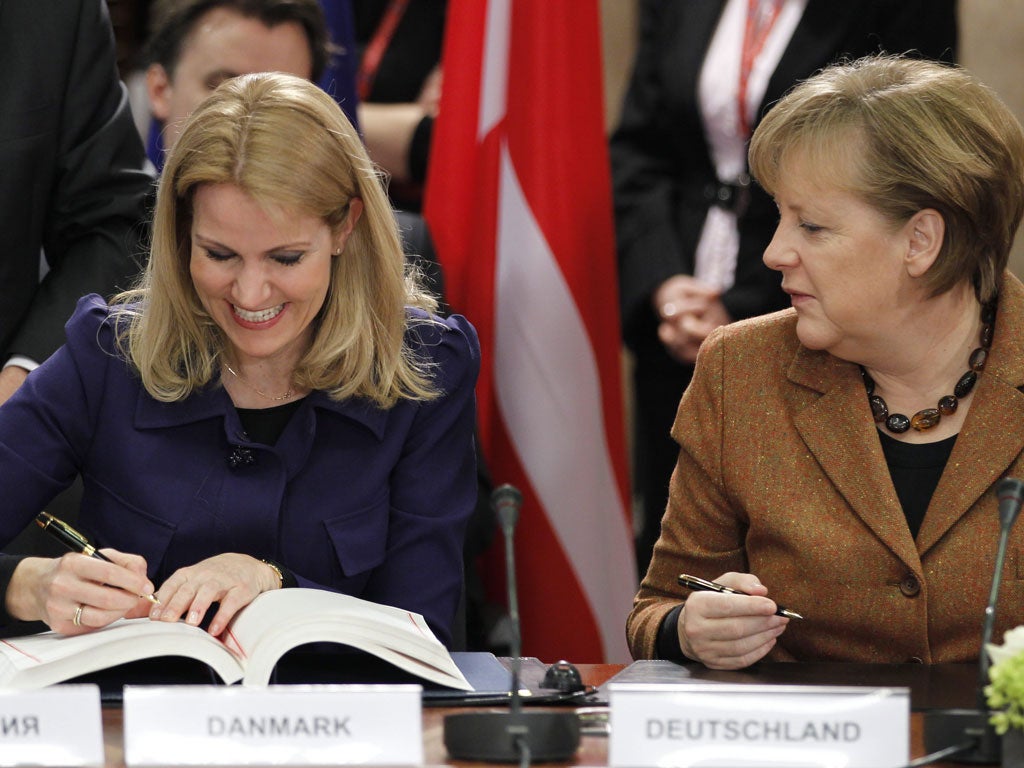Cameron clashes with EU leaders over reform plans

David Cameron claimed that he is winning the argument on economic reform in Europe yesterday but again clashed with Nicolas Sarkozy and Angela Merkel over the way ahead.
After a summit of EU leaders in Brussels, the Prime Minister said their draft statement on how to secure economic growth had been beefed up to reflect demands for more radical action by Britain and 11 other member states.
But EU diplomats accused Mr Cameron of inflating the importance of his role. They said he had failed to persuade Ms Merkel, the German Chancellor, to put up a bigger EU "firewall" against a future debt crisis before asking the International Monetary Fund for more aid for troubled European nations.
Allies of Herman Van Rompuy, the EU President, shrugged off criticism aimed at him by Mr Cameron, saying there were few new ideas in the shopping list drawn up by the 12 nations. One said: "The idea that the summit conclusions were totally rewritten bears no relation to reality. He [Mr Cameron] picked two fights but he did not win them."
Yesterday, 25 of the EU's 27 leaders signed a new fiscal compact to impose budgetary discipline in the eurozone, with only Britain and the Czech Republic remaining outside it.
Mr Sarkozy, the French President, said he did not agree with 15 per cent of the ideas in a pre-summit letter signed by 12 leaders, including Mr Cameron. He said: "Usually if you write a letter signed by other friends, it is because it is important. You are either announcing that you are leaving or saying you love someone. I take Mr Cameron's letter, after his decision not to join this latest treaty, as a sign that he doesn't want to get left behind, and I am delighted by that because we need the British in Europe."
Mr Cameron insisted at a post-summit press conference that the 12 nations had secured "fundamental" change in the leaders' statement on issues ranging from trade to energy and completing the single market.
He hailed an "unprecedented alliance" at the EU in favour of open markets and trade, which included not only the UK's traditional allies in Scandinavia but also major southern states such as Italy and Spain.
The Prime Minister said: "Today in Brussels we have made our voice heard. The communique has been fundamentally rewritten in line with our demands."
Join our commenting forum
Join thought-provoking conversations, follow other Independent readers and see their replies
Comments
Bookmark popover
Removed from bookmarks